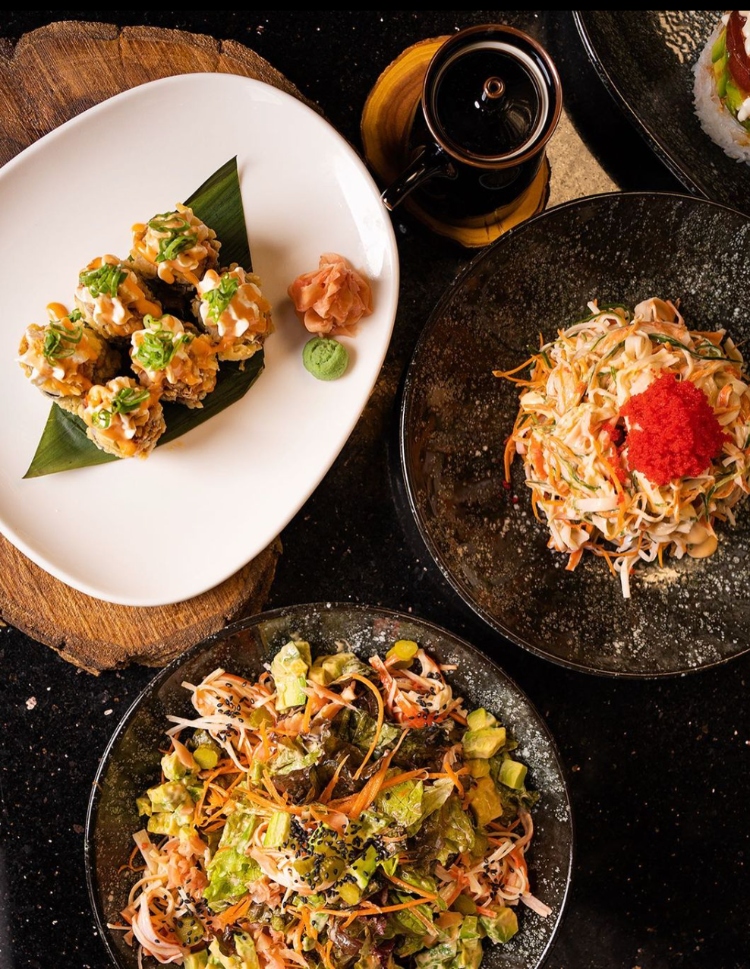In today’s digital age, food reviewers have emerged as influential figures in the culinary world, wielding the power to make or break a restaurant’s reputation. With their dedicated followers and fanbase, these reviewers have become an integral part of many establishments’ marketing strategies, helping to popularize new eateries and boost their success.
Some of Egypt’s most popular food reviewers include Foodista Egypt, Food With Soli (Ramy Soliman), Omar’s Food (Omar Shabrawy), Cairo Food Couple, and The Giraffe Eats. Their content is widely prevalent across platforms such as Instagram, Facebook, and TikTok which has emerged as the favored platform for influencer marketing, boasting the highest level of popularity among marketers.
The act of reviewing is not limited to Egypt alone. In the UK, the Food Review Club holds the title of being the country’s top food reviewer, engaging in a similar practice of reviewing food. In the US, Dave Portnoy’s One Bite Barstool Pizza Review is a popular channel that primarily focuses on reviewing pizza. It’s the same story but in different contexts. Nonetheless, both of these examples share a common thread: their dedication to reviewing and critiquing food.
However, this phenomenon is not without its critics, who argue that the authenticity and quality of the dining experience may be compromised as restaurants specifically cater to reviewers. Some critics, average citizens of Egypt, are driven by their undeniable love for food and exploration, which motivates them to try new restaurants. They believe that this marketing strategy creates a false impression and deceives customers into dining at establishments that may not live up to their expectations.
Undoubtedly, food reviewers serve as a valuable “marketing tool” for restaurants, particularly in an era where social media platforms have revolutionized how information is being distributed.
For example, numerous well-known brands have achieved notable success through the utilization of influencer marketing campaigns. For instance, Dunkin collaborated with popular TikTok personality Charli D’Amelio, while MAC partnered with Sabrina Bahsoon. Projections from Influencer Marketing Hub indicate that the influencer marketing industry is expected to grow significantly, reaching approximately USD 21.1 billion (EGP 651 billion) in 2024.
A positive review from a trusted reviewer can generate significant buzz and attract a wider audience, leading to increased foot traffic and profitability. By leveraging the reach and influence of food reviewers, which can reach up to several hundred thousand accounts, restaurants can tap into a wider customer base and gain more exposure.

However, this relationship between food reviewers and restaurants may compromise the integrity of the dining experience. This is because restaurants usually prioritize the needs and expectations of reviewers, sacrificing authenticity and compromising the quality of food and service. This occurs by going to great lengths to create an idealized experience for reviewers, leading to a disconnect between the reviewer’s visit and the average customer’s experience.
A NY Times article, claims that “Influencers add another cost to an already volatile and low-margin business, but they aren’t going away any time soon, and the serious ones drive traffic.”
The article even mentions that restaurants face a dilemma when it comes to dealing with influencers. While some establishments reject requests from influencers who don’t meet a minimum follower threshold, others choose to disengage entirely. However, opting out requires courage.
The issue extends beyond specific influencers. Restaurant owners understand that customers can be fickle, and influencers play a significant role in directing their followers to the next dining destination. Owners often express weariness when discussing the latest influencer-related scams, yet they still find themselves booking complimentary tables for influencers, driven by a pervasive fear of being overshadowed by nearby establishments that garner widespread attention for their innovative offerings.
This phenomenon often leaves diners feeling deceived, as they do not receive the same level of service and culinary excellence as portrayed in the reviews.
In another NY Times article, it claims that “Digital food photography serves not only as a valuable research tool but also as an affordable marketing tool. Simply uploading a snapshot of a new dish can lead to a surge in reservations within a short span of time. Chefs who present visually appealing, Instagram-worthy plates often benefit from the free publicity generated by enthusiastic diners turned volunteer publicists. These individuals willingly promote the restaurant through their social media posts, effectively leaving a positive impact on potential customers.”
Many restaurants have fallen into the trap of prioritizing elaborate presentations and impressing reviewers, which creates a disparity between expectations and reality. Reviewers, taking advantage of this opportunity, showcase visually appealing dishes that immediately captivate their followers and fans.
As a result, these individuals flock to the restaurants, only to discover that the quality of the food and presentation may not live up to the hype. Over the years, this large-scheme marketing pattern has been observed in numerous establishments, particularly those with a strong presence on social media. Such restaurants heavily rely on social media acceptance and cultivating a dedicated fanbase, which can inadvertently contribute to the discrepancy between the portrayed image and the actual dining experience.
Moreover, food reviewers like Ramy Soli and Hemida often pride themselves on their impartiality and dedication to providing honest assessments. They aim to guide their followers to outstanding dining experiences while maintaining transparency and authenticity.
Is it solely the reviewers’ fault? While they are not entirely to blame, as they rely on reviewing to make a living, the primary responsibility lies with the restaurants themselves for engaging in deceptive practices. The quality and consistency of food should be a fundamental focus for every establishment that aims to establish a reputable name. Therefore, resorting to deception only adds further uncertainty and tarnishes the restaurant’s reputation.

Ultimately, the impact of food reviewers on restaurant marketing is a complex issue that requires careful consideration. While their influence can undoubtedly help restaurants thrive, it is essential for both reviewers and establishments to maintain a balance between providing genuine experiences and promoting their offerings.
Transparency and open communication between restaurants, reviewers, and diners are key in fostering a healthy and trustworthy dining landscape.
With all fairness, it’s also crucial to recognize that not all restaurants partake in such practices solely to please food reviewers. Many establishments genuinely prioritize providing exceptional service and culinary experiences to all customers, irrespective of their affiliation with the reviewing community.
In conclusion, the influence of food reviewers, while initially appearing symbiotic, can be deceptive. The concerns about authenticity persist, revealing a darker side where some restaurants manipulate reviews for their gain. By critically evaluating both sides, diners can navigate through the deceptive practices and make informed decisions about their dining experiences.
The opinions and ideas expressed in this article are the author’s and do not necessarily reflect the views of Egyptian Streets’ editorial team. To submit an opinion article, please email [email protected].




Comments (2)
[…] In today’s digital age, food reviewers have emerged as influential figures in the culinary world, wielding the power to make or break a restaurant’s reputation. With their dedicated followers and fanbase, these reviewers have become an integral part of many establishments’ marketing strategies, helping to popularize new eateries and boost their success. …Read More […]
[…] celebrates the great flavors, experience, and service customers can expect. In a sense, a glowing review from a food critic should accomplish all of these goals. When a reputable food reviewer publishes […]